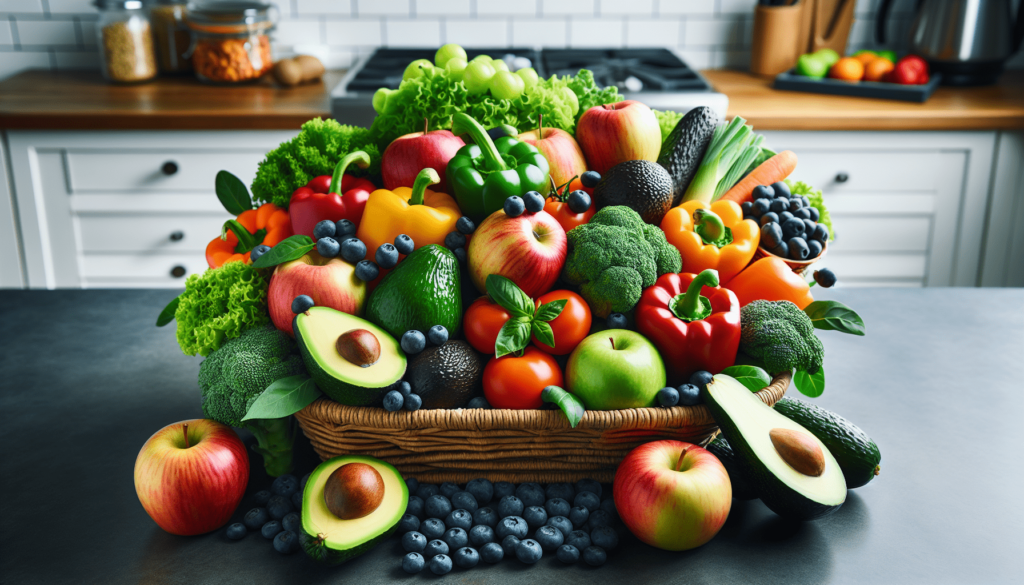Welcome to the wonderful world of successful meal planning! In this article, you will learn the key secrets to making meal planning a breeze. From saving time and money to eating healthier and reducing stress, these tips will help you create delicious meals for you and your loved ones with ease. So sit back, relax, and get ready to revolutionize your meal planning experience! Have you ever struggled with meal planning and felt overwhelmed with trying to figure out what to eat every day? If so, you’re not alone. But fear not, because in this article, you will learn the secrets to successful meal planning that will make your life so much easier and more enjoyable!
Getting Started with Meal Planning
Meal planning may seem like a daunting task, but with the right approach, it can actually be quite simple and even fun! The key to successful meal planning is to start with a solid foundation. This means taking the time to set yourself up for success by getting organized and setting realistic goals.
Set Realistic Goals
When it comes to meal planning, it’s important to set realistic goals that align with your lifestyle, preferences, and schedule. If you try to plan elaborate meals that require a lot of time and effort every day, you’re setting yourself up for failure. Instead, start small and gradually build up to more complex meal plans as you become more comfortable with the process.
In the beginning, aim to plan just a few meals a week and gradually increase the number as you get more comfortable with the process. It’s also helpful to think about what you enjoy eating and what foods you already have on hand to avoid unnecessary trips to the grocery store.
Get Organized
Meal planning requires a certain level of organization, so it’s important to set yourself up for success by getting organized. Start by creating a designated meal planning area in your kitchen or home where you can keep all of your recipes, grocery lists, and meal plans in one place.
Invest in some meal planning tools such as a planner, whiteboard, or app to help streamline the process and make it easier to stay on track. Take inventory of your pantry, fridge, and freezer to see what ingredients you already have on hand and what you need to buy.
Tips for Efficient Meal Planning
Now that you’ve set yourself up for success by setting realistic goals and getting organized, it’s time to dive into the actual process of meal planning. Here are some tips to help you plan your meals efficiently and effectively.
Create a Weekly Meal Plan
One of the best ways to stay on track with your meal planning is to create a weekly meal plan. Sit down at the beginning of each week and map out what you’re going to eat for breakfast, lunch, dinner, and snacks for the next seven days.
Use a meal planning template or app to help you organize your meals and keep track of what ingredients you need to buy. Make sure to include a mix of different types of meals, such as salads, soups, stir-fries, and casseroles, to keep things interesting and prevent boredom.
Batch Cook and Prep Ahead
One of the secrets to successful meal planning is to batch cook and prep ahead whenever possible. This means cooking large batches of food in advance and storing them in the fridge or freezer for later use.
On the weekends, spend a few hours preparing meals for the week ahead, such as chopping vegetables, cooking grains, and marinating meats. This will not only save you time during the week but also ensure that you have healthy and delicious meals ready to go when you need them.
Shop Smart
Another key aspect of successful meal planning is to shop smart. This means creating a grocery list based on your meal plan and sticking to it when you go to the store. Avoid impulse buys and unnecessary items by only purchasing what you need for the week ahead.
To make grocery shopping even easier, consider shopping online and having your groceries delivered to your doorstep. This can save you time and prevent you from being tempted by unhealthy snacks and treats while at the store.

Meal Planning Tips for Special Dietary Needs
If you have special dietary needs or restrictions, such as food allergies, intolerances, or preferences, meal planning can be a bit more challenging. However, with some extra care and attention to detail, you can still successfully plan meals that meet your nutritional needs and taste delicious.
Identify Your Dietary Needs
The first step in meal planning for special dietary needs is to identify what your specific needs are. This may involve consulting with a healthcare provider or nutritionist to determine what foods you should include or avoid in your diet.
Make a list of foods that you can and cannot eat, as well as any substitutes or alternatives that you can use in your recipes. This will help you stay organized and prevent any confusion when planning your meals.
Research and Experiment with Recipes
Once you’ve identified your dietary needs, it’s time to start researching and experimenting with recipes that meet those needs. Look for cookbooks, websites, and blogs that cater to your specific dietary restrictions and try out different recipes to see what works best for you.
Don’t be afraid to get creative and adapt recipes to suit your tastes and preferences. Experiment with different ingredients, seasonings, and cooking methods to find what works for you and your dietary needs.
Work with a Nutritionist or Dietitian
If you’re struggling to plan meals that meet your dietary needs, consider working with a nutritionist or dietitian who can help you develop a personalized meal plan. They can provide guidance on what foods to include in your diet, how to balance your meals, and how to ensure that you’re meeting your nutritional requirements.
A nutritionist or dietitian can also help you navigate food labels, identify hidden sources of allergens, and make informed choices when dining out or traveling. They can be a valuable resource for anyone with special dietary needs who wants to plan meals that are both delicious and nutritious.
Healthy Meal Planning on a Budget
Meal planning doesn’t have to break the bank. In fact, with the right approach, you can plan healthy and delicious meals on a budget that won’t leave you feeling deprived or overspent. Here are some tips for meal planning on a budget.
Shop Sales and Use Coupons
One of the easiest ways to save money on groceries when meal planning is to shop sales and use coupons. Keep an eye on your local grocery store flyers for deals on items you regularly buy, such as grains, proteins, and produce.
Clip coupons from newspapers, flyers, or online sources to save even more on your grocery bill. Many stores also offer digital coupons that you can load onto your loyalty card for additional savings.
Buy in Bulk and Freeze
Buying in bulk is another great way to save money when meal planning. Purchase items like grains, beans, and frozen fruits and vegetables in bulk to get a lower price per unit and have plenty of ingredients on hand for future meals.
When buying in bulk, be sure to portion out items into smaller containers or freezer bags to prevent waste and make it easier to use them in recipes. Store bulk items in a cool, dry place or in the freezer to ensure they stay fresh longer.
Cook from Scratch
Another way to save money when meal planning is to cook from scratch as much as possible. Pre-packaged and convenience foods can be expensive and often contain hidden additives, preservatives, and unhealthy ingredients.
By cooking from scratch, you not only save money but also have more control over what goes into your meals. Purchase whole ingredients such as grains, vegetables, and proteins and prepare them at home using simple cooking methods like roasting, sautéing, or steaming.
Use Leftovers Wisely
One of the best ways to save money and reduce food waste when meal planning is to use leftovers wisely. Instead of letting leftover meals go to waste, repurpose them into new dishes or pack them for lunches the next day.
Get creative with your leftovers by turning them into soups, salads, stir-fries, or casseroles. You can also freeze leftovers in individual portions for quick and easy meals on busy days when you don’t feel like cooking.

Conclusion
Meal planning doesn’t have to be complicated or stressful. By following the secrets to successful meal planning outlined in this article, you can take control of your eating habits, save time and money, and enjoy delicious and nutritious meals every day.
Remember to set realistic goals, get organized, and create a weekly meal plan to stay on track. Batch cook and prep ahead to save time during the week, shop smart to avoid impulse buys, and plan meals that meet your dietary needs and taste preferences. And don’t forget to meal plan on a budget by shopping sales, buying in bulk, cooking from scratch, and using leftovers wisely.
With these tips and tricks in mind, you’ll be well on your way to successful meal planning that will make your life easier, healthier, and more enjoyable. Happy meal planning!

